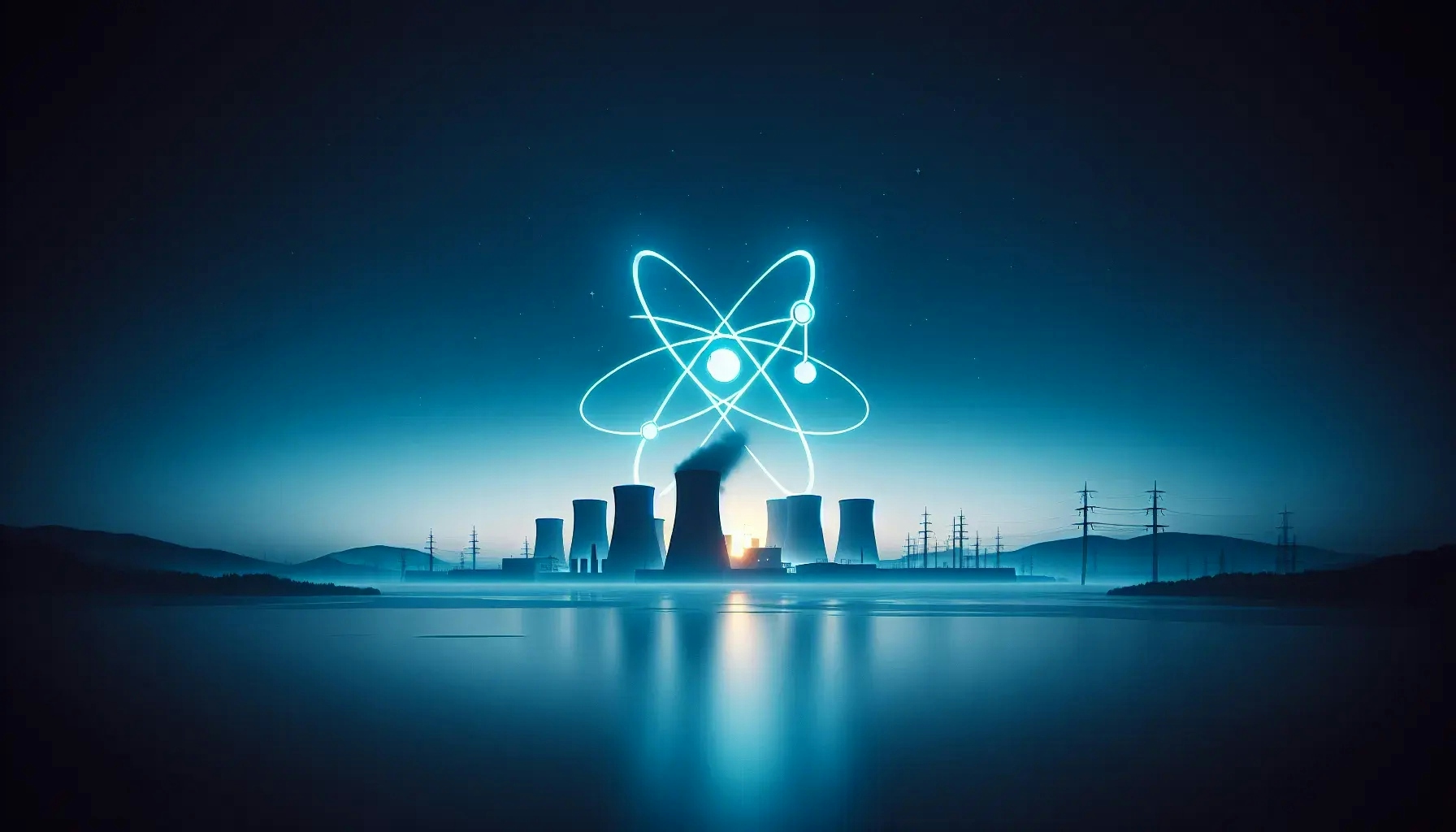As we stand at the crossroads of energy consumption and environmental preservation, the role of nuclear energy in a sustainable future becomes increasingly significant. This blog post delves into the potential of nuclear energy as a sustainable power source, its advantages, challenges, and its integration into the future energy mix.
Understanding Nuclear Energy: The Basics
Nuclear energy, often misunderstood, is a potent power source. It originates from the nucleus of an atom, the smallest particle of a chemical element that retains its properties. When we split the nucleus, a phenomenon known as nuclear fission, it releases a tremendous amount of energy. This energy, harnessed in nuclear power plants, can generate electricity on a large scale.
The process of nuclear fission begins with the mining of uranium, a naturally occurring radioactive element. This uranium undergoes enrichment to increase the concentration of U-235, a specific isotope of uranium capable of sustaining a nuclear chain reaction. The enriched uranium then serves as fuel for nuclear reactors.
Nuclear reactors are the heart of a nuclear power plant. They control the nuclear chain reaction and harness the energy produced. This energy heats water to produce steam, which drives a turbine connected to a generator, producing electricity.
The Sustainability Factor: Nuclear Energy's Role
The role of nuclear energy in a sustainable future is multifaceted. It offers a solution to several pressing global issues, including climate change, energy security, and energy poverty.
Nuclear energy is a low-carbon power source, producing virtually no greenhouse gas emissions during operation. It contributes significantly to the decarbonization of the energy sector, a crucial step in mitigating climate change. Moreover, nuclear power plants, with their high capacity factors, provide a reliable, uninterrupted power supply, enhancing energy security.
Addressing energy poverty, another critical aspect of sustainability, nuclear energy can play a vital role. It can provide affordable electricity to the nearly 800 million people worldwide who currently lack access to it. By doing so, nuclear energy can contribute to social and economic development, improving living standards and facilitating progress.
Overcoming Challenges: The Path Forward for Nuclear Energy
Despite its potential, nuclear energy faces several challenges. These include high upfront costs, waste disposal issues, and public perception.
The construction of nuclear power plants requires significant capital investment. However, once operational, these plants have low fuel costs and long lifetimes, offering a cost-effective solution in the long run. Innovative financing models and public-private partnerships can help overcome the initial cost barrier.
Nuclear waste disposal is another challenge. While the volume of nuclear waste is relatively small, it remains radioactive for thousands of years. Advanced waste management strategies, including geological disposal and recycling of nuclear waste, can address this issue.
Public perception of nuclear energy, often influenced by nuclear accidents and the association with nuclear weapons, is a significant hurdle. Education and transparent communication about the benefits and risks of nuclear energy can help change this perception.
The Future Energy Mix: Integrating Nuclear Energy
The integration of nuclear energy into the future energy mix is crucial for a sustainable future. Nuclear energy can complement renewable energy sources like wind and solar, which are intermittent and dependent on weather conditions.
Nuclear power plants can provide a steady power output, compensating for the variability of renewables. This combination can ensure a reliable, low-carbon power supply, essential for a sustainable future.
Moreover, nuclear energy can support the decarbonization of other sectors, such as transportation and industry, through the production of hydrogen and process heat. This versatility further enhances the role of nuclear energy in a sustainable future.
Innovations in Nuclear Technology: The Road Ahead
The future of nuclear energy lies in technological innovation. Advanced reactors, small modular reactors (SMRs), and fusion technology are some of the promising developments.
Advanced reactors are designed to be safer, more efficient, and produce less waste than traditional reactors. SMRs, on the other hand, offer flexibility in deployment and can be a viable option for remote areas and developing countries.
Fusion technology, often dubbed the 'holy grail' of nuclear energy, promises abundant, safe, and clean energy. While still in the experimental stage, successful fusion could revolutionize the energy landscape.
Policy Support: A Catalyst for Nuclear Energy
Policy support is critical for the growth of nuclear energy. Governments can play a pivotal role by providing a conducive regulatory environment, funding research and development, and facilitating international cooperation.
Policies that recognize the value of nuclear energy in climate change mitigation, such as carbon pricing, can incentivize its adoption. Additionally, international collaboration can help share best practices, develop common safety standards, and foster innovation in nuclear technology.
Nuclear Energy: Powering a Sustainable Future
The role of nuclear energy in a sustainable future is undeniable. Despite challenges, its potential as a reliable, low-carbon power source positions it as a key player in the future energy mix. With technological innovation, policy support, and a balanced energy portfolio, nuclear energy can indeed power a sustainable future.

